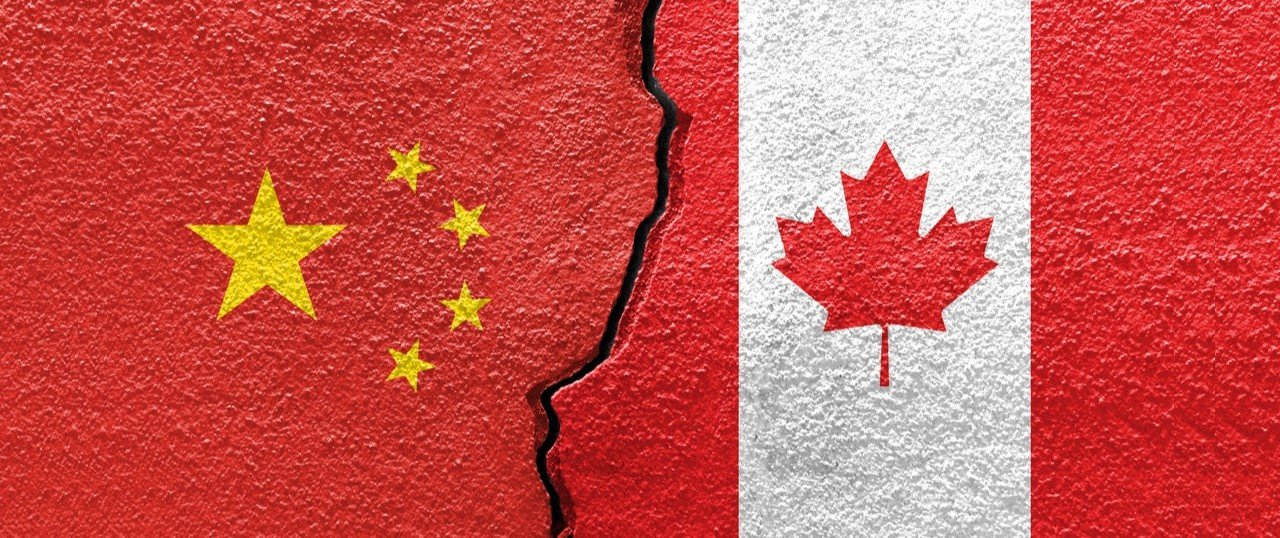

May
Trade with China has represented enough of an interest for Canada that even back in 1961, Canada’s prime minister at that point (John Diefenbaker) granted Canadian farmers access to China’s significant market despite the fact that diplomatic relations had not yet been established.
As was the case with pretty much every other nation, diplomatic relations with China were suspended as of 1949, when the communist forces won the civil war and were only re-instated once various countries started recognizing the People’s Republic of China rather than the Republic of China as… well, China. Canada was among the first Western nations who did just that, with diplomatic relations being re-established as of the 13th of October, 1970 (and negotiations having been initiated back in 1968).
As time passed, China became a market considered large not just as a function of its sheer population size like in 1961 but also as a result of its ever-increasing financial potential, with Canada establishing itself as a regular presence on the top 20 list of China’s most significant trading partners, with the reality that bilateral trade went from roughly CA$3 billion back in 1992 to over ten times more in the present speaking for itself.
Does this sound a bit like a trade-oriented love story thus far?
Unfortunately, it isn’t, for reasons such as:
- The fact that Canada’s trade imbalance with China is becoming increasingly difficult to “sell” to the Canadian public, a situation encountered more and more in the proverbial West. Simply put, overly-indebted Western nations are just not willing to give what the general public perceives to be a free ride to Beijing anymore, with more or less meaningful measures being implemented to somehow tackle this troubling trade deficit
- The fact that the general public isn’t exactly thrilled about China. For example, according to 2019 Pew Research Center data, only 27% of Canadians declared that they view China in a favorable manner. Other sources confirm these findings, with BBC World Service poll data for 2017 indicating that only 37% of Canadians have positive things to say about China’s influence, with some of them downright specific, for example a 2019 Angus Reid survey which revealed that 7 out of 10 Canadians consider human rights a topic that trumps (no pun intended) the trade dimension as far as China is concerned
- The fact that geopolitical challenges keep appearing, with Canada oftentimes finding itself between a proverbial rock and hard place. For example, the Huawei situation and subsequent arrest of Meng Wanzhou (CFO), with pressures from China to “fix” the situation and pressures from the West to do the opposite. To make matters worse, the public isn’t exactly pleased that Meng is allowed to live in luxury conditions in Vancouver, whereas Canadian citizens arrested in China have it quite a bit harder… to put it mildly
- The United States dimension, a more specific interpretation of reason #3. It is a well-established fact that the love-hate relationship between China and the United States is dwelling more and more in “hate” territory, with tremendous pressure being put on Canada to think not twice but preferably three times before warming up to Beijing
All things considered, this is most definitely not exactly what one would call a textbook example of a geopolitical love affair… on the contrary. Still, trade numbers cannot be ignored and despite ample causes for animosity, nobody can deny that China has been Canada’s #2 trading partner for almost two decades (since 2003, to be more precise). To cover all bases, however, it is worth noting that China would only occupy position #3 if the European Union would be considered a stand-alone entity.
The true elephant in the room in terms of trade is, however, represented by… you’ve guessed it, the United States yet again. Not only is the US light years ahead of China in terms of its bilateral trade numbers with Canada (almost 8 times greater than those experienced with China by Canada), the nature and direction of these bilateral trade numbers is in Canada’s favor. Simply put, Canada is experiencing a very significant trade SURPLUS with the US, in contrast with the steep trade DEFICIT experienced with China. Even in light of the fact that the Donald Trump administration made it perhaps its #1 goal to tackle US trade deficit-related issues (even in a very aggressive manner, if necessary), let’s just say the likelihood of China being better-positioned than the US with respect to Canada anytime soon is remarkably low.
On the one hand, you have a country with clear Western values, which is Canada. On the other hand, you have a nation that oftentimes engages in behavior that goes in stark contrast with just that (especially when it comes to sensitive topics such as human rights issues), which is China. While China puts some more than decent bilateral trade volume numbers on the table, the volume pales when compared to the United States and the direction is anything but satisfactory. Even if that wouldn’t have been the case and if the trade equation would have been clearly in Canada’s favor, the Canadian public has overwhelmingly made it clear that in its view, human rights top trade benefits.
Is this status quo likely to change anytime soon?
While Sino-Canadian relations will naturally be experiencing ups as well as downs, it isn’t very likely that the status quo changes in a meaningful manner over the course of the next few years in light of the fact that a wide range of forces (some that have to do with China, some which have to do with Canada’s Western trading partners and especially the US) stubbornly keep that from happening. As always, however, the ChinaFund.com team will keep its ear to the ground and would happily share insights with you and/or your organization upon request.
